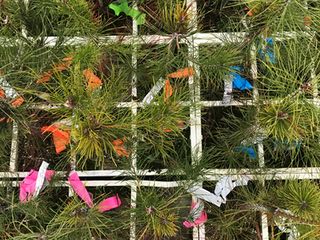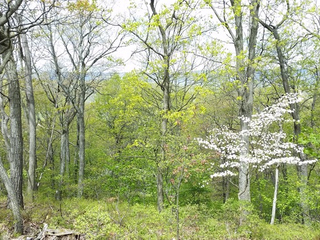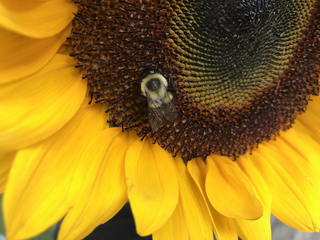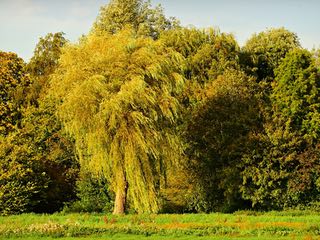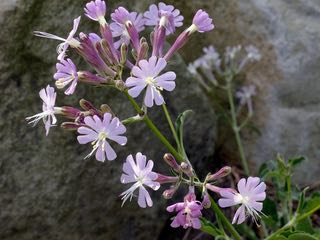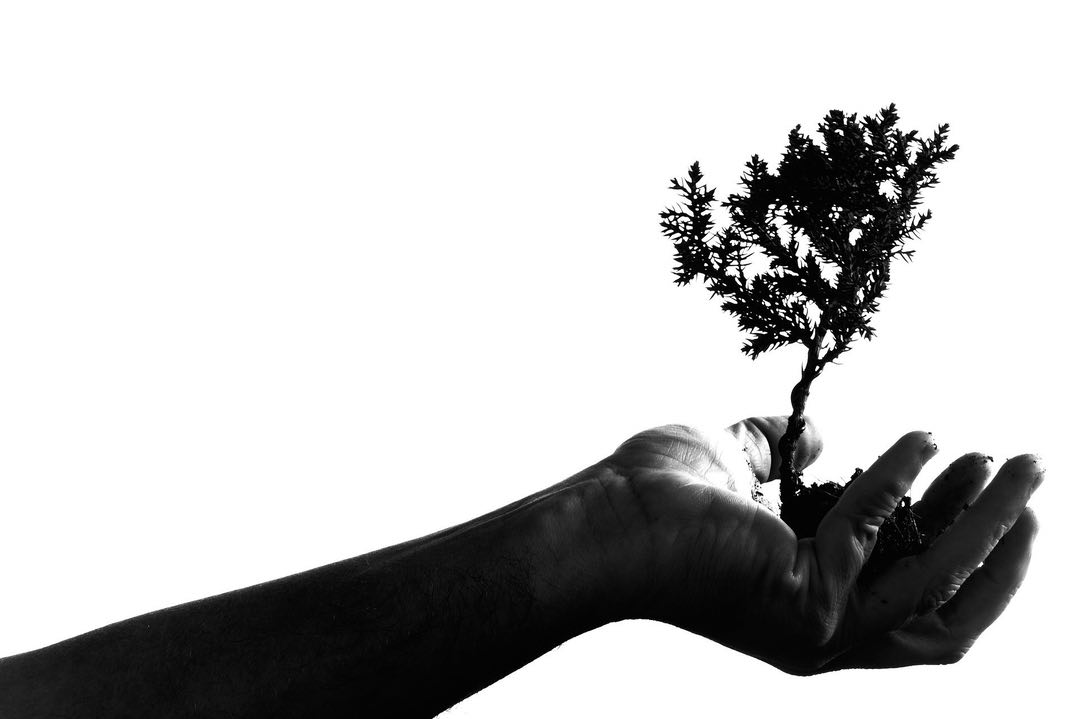
One Thing We Could All Do To Make a Difference
I asked WS/C’s knowledgeable Board of Advisors who have diverse expertise and perspectives to name one thing they think we all can do to make a difference. This is what they said.
By Gayil Nalls
Sign up for our monthly newsletter!
There are many animal species that act together as one organism to the benefit of all individuals, giving each the best chance of survival. They move as a whole, in an integrated and coordinated way, whether it be flocking, herding, swarming or schooling.
If there is an emergent strategy for impacting biodiversity loss and climate change, logic holds that it is the collective action of human society that will bring about the most powerful effect. The number or proportion of us that move away from old patterns and make new sustainable decisions will determine our ultimate impact on biodiversity loss and climate change, and on our own well-being and survival. The right repeated actions and interactions will create new large-scale patterns. This is how new norms of global sustainability will emerge, this is how we will control our destiny— unity is our resilience.
The World Sensorium/Conservancy (WS/C) is a platform and network for the transfer of information from multiple disciplines to support and grow this collective intelligence so that we can best manage biodiversity loss and circumvent climate change. For me, it’s a given that we need to achieve net-zero carbon emissions. However, it’s equally important scale and thus accelerate our conservation actions. These are the most important things we can do to ensure our future.
Naturally, I asked WS/C’s knowledgeable Board of Advisors who have diverse expertise and perspectives to name one thing they think we all can do to make a difference. This is what they said.
Deborah Anderson
‘Reduce lawn size by planting more native plants and vegetable gardens.’
I have always enjoyed mowing my lawn. The smell of freshly cut grass triggers wonderful memories for me. However, I enjoy it even more now since there is less of it. Millions of people with yards can reduce their lawn areas by planting native plants which improve the visual appeal and can add value to their property. We kept the grass areas we use most and reduced other areas by expanding our vegetable garden and adding native plant beds. This increased the plant diversity and supported local birds, pollinators and wildlife. The native plants are much more likely to thrive as climate change continues because they have adapted to the region’s climate and soil and require less water and maintenance. We have trees and shrubs of all sizes that create layers of shade and have planted nitrogen-fixing evergreen ground cover requiring very little attention to thrive. Also, mulching yearly with biodegradable mulch reduces weeds and helps retain moisture.
Millions of Americans mow their lawns with gasoline powered lawn mowers that produce a lot of pollution. The EPA says a new gas-powered lawn mower produces as much pollution and greenhouse gases as 11 new cars in the same hour. We are now researching which electric or solar model to get for our next lawn mower.
Braden Bejella
‘Simply talk to people.’
Modern life atomizes us. It makes us feel as though we’re all individual actors pursuing personal goals, when in reality, that couldn’t be further from the truth. Movement on any issue requires forming strong bonds with those around you, bonds that will allow you to rally people when you need them and be there for them when they need you.
This can have a big impact when it comes to environmentalism. Ignoring the more obvious aspects — for example, gathering a group of people for a protest — keeping up-to-date with people in your life can encourage them to make a lasting change. If you’re planting a garden, discuss with your friends and co-workers, offering them advice or physical help if they suggest planting their own. And if you, as a group, observe someone or something making a negative impact on the environment, you can work together to stop it. To quote David Graeber, “The ultimate, hidden truth of the world is that it is something that we make, and could just as easily make differently.”
Simply by talking to each other we can make the world a better place.
Mary Lou Falcone
‘You have a choice –’
– to help heal the planet or to contribute to its ongoing destruction. Just say YES to healing and take control of what you can NOW, before it’s too late!
Stuart Firestein
‘Value aromatic and medicinal plants for what we know and don’t yet know about them.’
I think we all should value aromatic and medicinal plants not only for what we know about them but for what we don’t yet know about them. They have been our food and medicine throughout history and are a resource for the future that we can’t afford to lose. We must save all of them we can.
I’m a professor at Columbia University where I also run a neuroscience laboratory that investigates the olfactory system, the sense of smell, as a window into how the brain works. Our research asks how aromatic molecules turn into perceptions. The sense of smell is one of the most important ways we interact with our environment, and evolution has given us noses that are miraculous chemical detectors, especially for aromatic plants. Smell is linked to taste and appetite which turned aromatic plants into culture defining cuisines around the world. Our olfactory brain has interconnections with memory and language which has further integrated these plants with human societies. Awareness of the value of aromatic and medicinal plants is an important step to understanding why we must protect and conserve them.
Joan D. Firestone
‘Live daily life sustainably. ’
No matter your age, no matter what you do or want to do in your life, every day is an opportunity to do it sustainability. Support one another in this challenge, be creative, and believe that we can reach our zero-carbon goal and stop biodiversity loss.
Véronique Firkusny
‘Turn off your lights and switch to LED lightbulbs! ’
One hears a great deal about the correlation between fossil fuels and carbon footprints, but research indicates that electricity is actually one of the main sources of CO2 emissions. According to a 2019 Environmental Protection Agency statement on greenhouse gas emissions in the United States, 62% of our electricity comes from burning fossil fuels. Turning off lights when you leave a room or your home makes a difference. Unplugging appliances that are not in use makes that difference even bigger and using a power strip allows you to turn off your devices in one step. Replacing incandescent or fluorescent lightbulbs in and around your home with LED lightbulbs, which use 75% less electricity, further cuts down greenhouse gas emissions. You can also manually turn off your computer monitors rather than using a screensaver. These simple changes will reduce both your energy bill and your environmental impact.
Abigail Fleming
‘Toxic-free Lawns— Kick the Chemical Habit!’
You too can have a green lush lawn, weed-free, pest-free without using chemicals. But first, realize certain “weeds” are good for your lawn, as are certain bugs. A slow-release organic fertilizer works to improve and stimulate the soil health, working with nature rather than destroying it. Our obsession with green, immaculate lawns goes back a few hundred years. Sweeping emerald green lawns rolling down to a pond is picturesque… But at what cost? I live near a 300-acre coastal pond that has a multitude of aquatic life unlike any other water body in a 100-mile radius. It is surrounded by homes with expansive perfect lawns that edge the pond. This unique ecosystem is being seriously challenged by high nitrogen found in chemical lawn fertilizers draining into the pond. High nitrogen has caused fish kill, contaminated the crabs and prohibited swimming for everyone. High nitrogen has also been found in our drinking water! When these chemicals enter ponds and rivers, they also cause algae overgrowth and as they wash into the ocean, they cause dead zones. Marine life that doesn’t leave the area dies. This is happening to water ecosystems all over this country. Not good, but we can all do something about it. Go toxic-free! Committing to toxic-free lawn care is no more complicated or costly than chemical fertilizers. Wherever you live, you can find organic lawn care products and organic lawn care professionals.
Octavia Overholser
‘Start a compost! Convince your friends to start one too!’
I have had a compost in my garden for 8 years and the content keeps compacting. We seldom use the dirt but there is always room for more waste. Composting can be done in your backyard or in special containers in your apartment. If you cannot compost, see if your community has special compost bags or containers for pick up. You can also offer compost matter to a friend or gift them with compost appliances so they can help save the planet!
Composting can reduce your garbage by up to 50% instead of it going to landfill or being incinerated, which reduces greenhouse emissions. In compost, the carbon stays in the soil and is not released into the atmosphere.
Composting increases biodiversity by attracting a variety of beneficial microorganisms to the plant material, such as bacteria, fungi, and other insects who participate in the breakdown process. Soil carbon is created from this interplay and sequestered in soil. By increasing the organic matter, you not only increase the carbon stored, this is an ideal way to maintain healthy soil and give nutrient rich fertilizer to your plants.
Your compost can comprise: fruit and vegetable waste, bread, coffee grounds and filters, tea bags, paper towels, tissues, egg shells and cartons, garden waste such as plants, leaves, and cut grass, and any other item where it is written ‘compostable’.
Azra Raza
‘Make saving aromatic and medicinal plants a personal priority’
Compounds in plants save humans as food and medicine. Science has made big advances in phytochemcial, pharmacological and molecular research, however, throughout the world there are species of aromatic and medicinal plants that have not yet been tested for anti-cancer and anti-tumor bioactive metabolites. We are losing plants that have never been examined for their pharmacological properties and possibly losing life saving new drugs. it must be everyone’s priority to change this. Human survival depends on a cooperative effort from everyone, worldwide, to save plants.
John Steele
‘Plant a Tree.’
It’s long been a declaration of optimism. Martin Luther is attributed to have written, “Even if I knew that tomorrow the world would go to pieces, I would still plant my apple tree.” Early American banker, Stephen Girard was quoted to have said, “If I thought I was going to die tomorrow, I should nevertheless plant a tree today.”
It’s a simple act of hope and imagination… and sequestering carbon.
Lewis Ziska
‘Participate in government and vote.’
The one action, above and beyond each of our day-to-day activities, and that each of us must do, is be involved in politics. It is our duty as citizens, and especially so as climate change intensifies. We can’t ignore things, or even worse, blame government and make it a scapegoat. We need to remember the three-word phrase in the Constitution: We the People. WE are the government. WE have the responsibility. And when we assume that responsibility, when we VOTE, the differences we can make, from the minimum wage, to sustainable energy, to climate change, can be enormous.
To my way of thinking, this is something everyone can and should do, to create a better future. We need to vote as if our life depended on it. Because it does.
Gayil Nalls, PhD, is the creator of World Sensorium and founder of the World Sensorium/Conservancy.
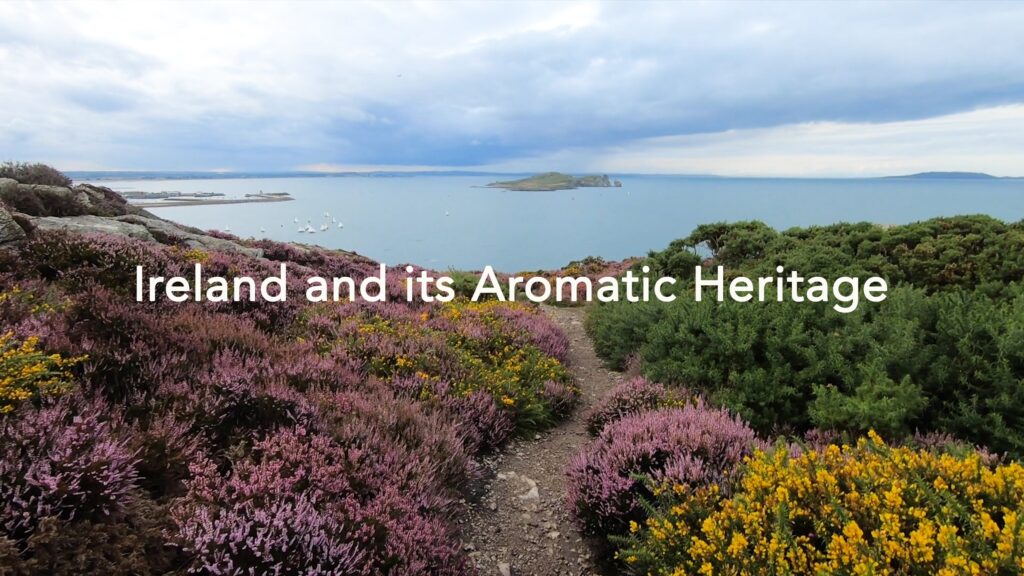
As Ireland transitions from the rich, smoky scent of peat-burning to a more sustainable future, its olfactory heritage is evolving. What will become the next iconic aromatic symbol of Ireland?
Click to watch the documentary trailer.


